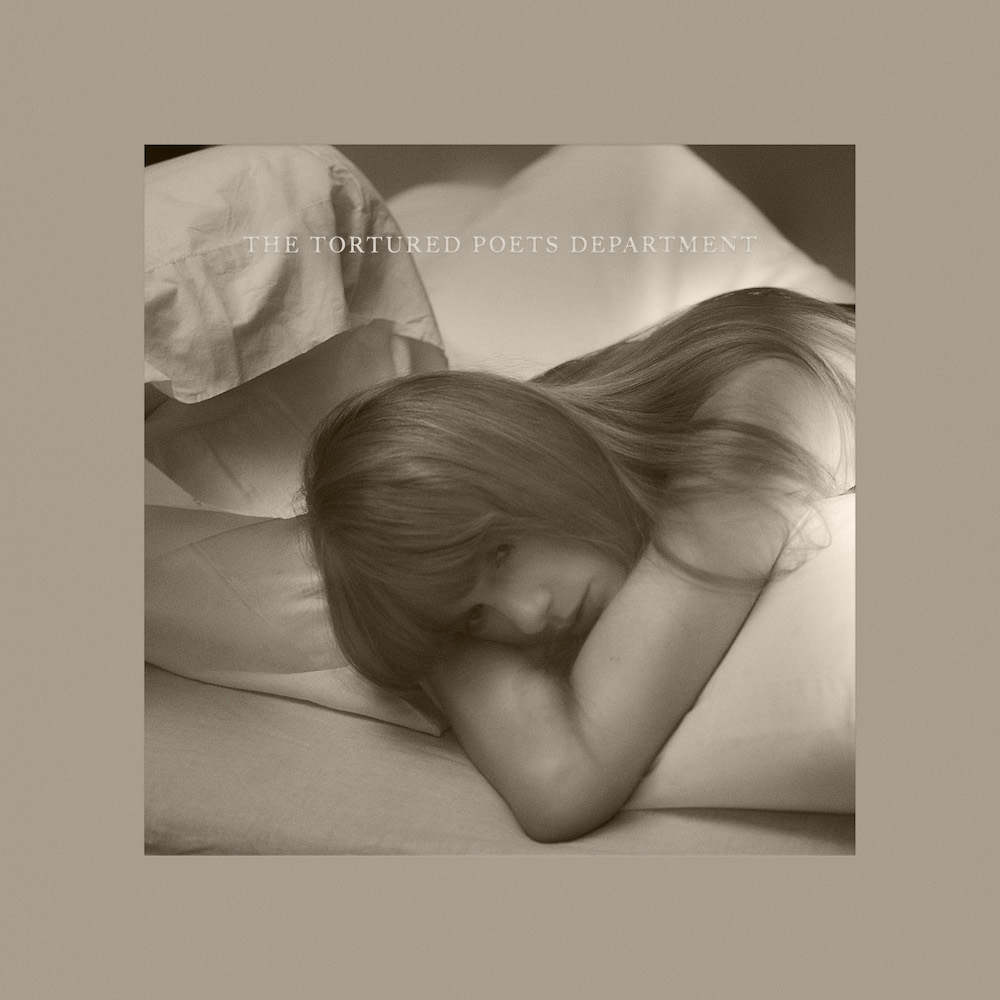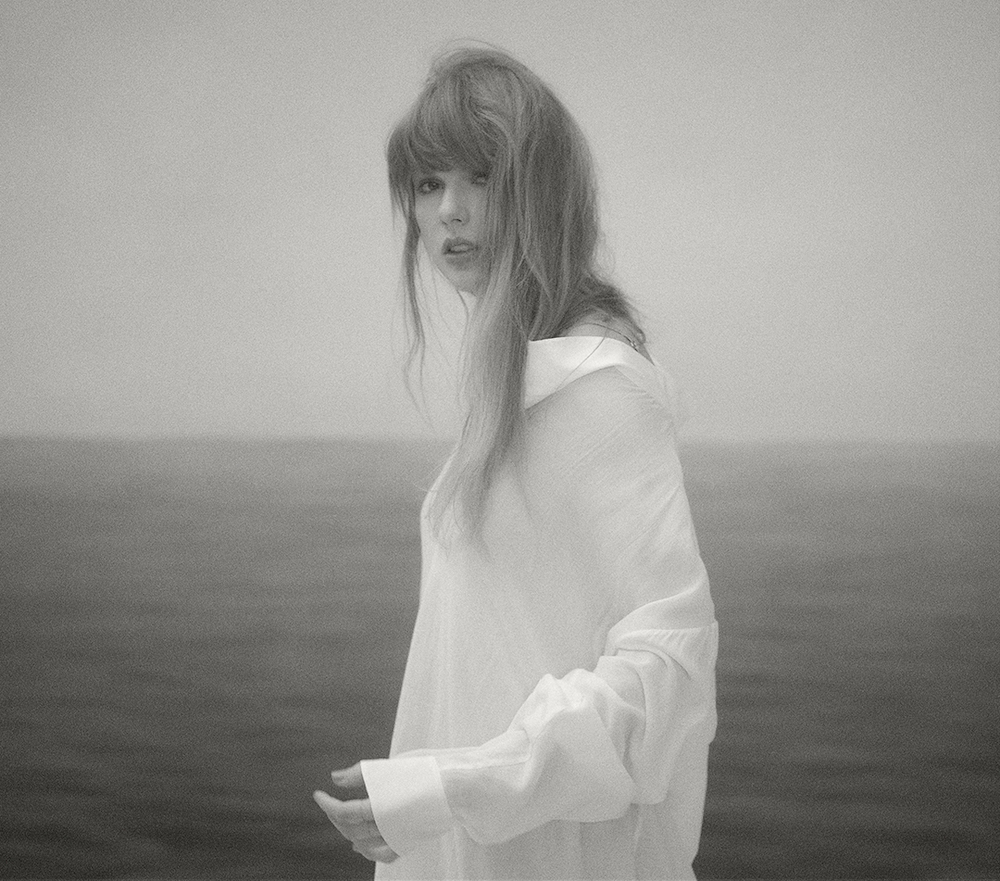
It’s Taylor Swift’s world right now and like it or not, we’re all living in it. In an industry still tainted by misogyny, Swift’s global domination of album and singles charts, airwaves, media outlets and the live music scene should be a cause for feminist celebration. The Swift era shows no signs of coming to an end either. Since February, when Swift announced the release of “The Tortured Poets Department” onstage at the Grammys, fans, cultural commentators and the media alike have been ready to combust with excitement. Numerous airtime hours and a whole library’s-worth of words have been devoted to predicting what Swift might reveal about her two known ex-boyfriends since the release of her last studio album “Midnights” in 2022. The world demanded to be brought up to date.
This is what people do when Taylor Swift releases an album – we know the drill by now – but the speculation appears to have reached dizzying new heights this time. Barely had the album dropped in the early hours of last Friday, Twitter was swimming in screenshots of lyrics and intense debate about whether particular songs were about this ex or that ex. The search for definitive proof came to centre on the vital clue that one ex-boyfriend possesses the tattoos referred to in the lyrics of the title track and the other ex allegedly does not. Elsewhere, detailed theories were developed around whether a series of coloured squares on the cover of the album her ex’s band released six years previously symbolised Swift’s previous albums (are you keeping up?), therefore providing proof they had been in love for years. This is not a joke.
„Show a bit of leg!“
What barely anyone – fans, critics, the general public – seems to be talking about, is the actual music. For a female musician talked up as a trailblazing feminist icon for our times, it all feels… not particularly empowering or revolutionary. Generations of women writers and artists could offer Swift some hard-won wisdom, that she could probably use at this point in her career. When your work is being mined for autobiographical detail – when that’s the only thing that anyone seems interested in – as though it were your personal diary, misogyny is surely rearing its ugly head. When it’s the men apparently portrayed in your art rather than your own female subjectivity, much less your ideas, that are getting the attention, it’s just further evidence of that misogyny at work. It’s the equivalent of asking a female Oscar nominee who she’s wearing or asking her to “show a bit of leg” for the camera. This doesn’t happen to male musicians. If anyone dared suggest that the most interesting aspect of the Beatles’ work was what it revealed about Lennon and Yoko Ono’s love affair, or Ono herself, there would be an outcry. As if Lennon’s art could be reduced to this! So why do we do this to female musicians? Why do we insist on making the men in their lives more interesting than the art they create?
Perhaps more importantly, why does Swift appear to be playing into one of the oldest sexist tropes going? She used to hold up two fingers to the caricatures painted of her by the media: “I go on too many dates. But I can’t make them stay,” she sang gleefully on 2014’s “Shake It Off”. Now, she’s cashing in on this insatiable desire of the public to know the lurid details, granting fans paid access to exclusive commentary on selected tracks via Amazon Music. It’s profoundly depressing, not only because of the misogyny, but because it’s ultimately damaging to the work itself. It doesn’t take a lengthy lecture on postmodernism to understand that obsession with fixing the “meaning” of songs on specific relationships can only serve to reduce the power of the art. In these circumstances, how can the listener lift a song and place it in their own world, let it soundtrack and articulate their own experiences and stimulate their own thinking? This is what art should do.
Perhaps, though, the preoccupation with the lyrics of “The Tortured Poets Department” speaks to a blunt truth: the lyrics are its most interesting feature. If we are to judge it purely on the music (and surely we should – Swift is a musician first and foremost, despite the range of other roles she’s increasingly occupying in culture), this is not a great album. Such is Swift’s status, that criticism of her can be seen as heresy or anti-feminist – Paste Magazine actually declined to put the writer’s byline to their negative review, citing previous death threats to their staff from Swift’s fanbase. This is, frankly, bonkers. Nobody should be above criticism, whatever their gender or their status. Swift is undoubtedly a very talented songwriter, but there is nothing of the calibre of a “Style”, “Cruel Summer” or even more mellow tracks such as “Cardigan” here, that make her marathon three-hour Eras Tour set so compelling to watch. Perhaps she just needs a break: besides being on a sell-out world tour for a year, this album comes only eighteen months on the heels of Swift’s last studio album. In that time, she’s also released re-recordings of two older albums. Maybe she’s just spent too much time looking backwards instead of forwards. Or perhaps she needed someone to say honestly to her: this album isn’t ready to go out into the world.
„This is exhausting.“
“The Tortured Poets Department” has clearly been a catharsis of sorts for Swift. She told a recent crowd that writing the album was a “lifeline” for her amid heartbreak. It’s an album of juxtapositions, the best of the lyrics seething with hurt and rage and profound sadness, but paired with melodies that are mostly dull, indistinguishable from one another, weighted down with a lack of direction. Musically, it lands somewhere between the weaker songs of “Midnights” and the less compelling parts of “Folklore”. It feels like the sonic equivalent of your best mate ranting at you: “I love him…But I hate him! But I love him…” through floods of tears. You feel for them, but you eventually reach the outer limits of your patience. With “The Tortured Poets Department” this point came for me two hours after I digested the first sixteen tracks, when Swift dropped a further fifteen tracks unannounced, taking the album’s total run time to over two hours. I heard Swift’s own voice in my head, from “We Are Never Ever Getting Back Together”: “This is exhausting”. Particularly because these additional fifteen tracks offer nothing any more noteworthy.

Whilst the voices of consumer capitalism will always shout “More! Now!”, this doctrine often doesn’t serve art well. Even Prince seemed to eventually realise that the world didn’t need a quintuple album from him, that twelve tracks could be better. In Swift’s case, paradoxically the more songs she throws at us, the more obvious it becomes that she often writes in the same key, with the same instrumentation, with the same motifs, about the same themes. She clearly needed to get these songs out, but that’s not the same as needing to release them into the world. Swift has a way with a clever lyric, but there are a number of occasions on the album, where even these are half-baked or juvenile. She might be being ironic on “Down Bad” when she sings: “Everything comes out teenage petulance”. Then again, maybe not. “The Smallest Man Who Ever Lived” is one such example, playing out like a late-night drunken slide into the DMs of a fresh ex, when no one’s around to grab your phone from you and say: “What the fuck are you doing?” Perhaps that’s another issue with reaching Swift’s stature as an artist though – that nobody, not even her closest collaborators, is willing to challenge her and say: “You can do better than this”. Maybe this is Swift’s own postmodern turn: maybe she’s making the point that heartbreak is equal parts yelling eloquent insults down the phone or into the air and mind-numbing, repetitive, monotonous grief. But this is probably a reach. Maybe we’re all overthinking this. Maybe we’ve reached saturation point in this Swiftian world and we’ve all gone insane.
The tragic, unlovable woman deranged by heartbreak
Mercifully, few albums are wholly terrible. It would be remiss not to acknowledge that there are some genuinely witty, memorable, even emotionally wrought lyrics here (the lyrics again), like “my friends all smell like weed or little babies”on the Florence Welch duet “Florida!!” or the acutely painful “you’re the loss of my life” in “Loml”. Musically, the guitar and bass harmonies of the acoustic “I Can Fix Him (No Really I Can)” stand out amid a cluster of sameness and repetitiveness. Then there’s “But Daddy I Love Him”, probably the most lyrically (if not musically) interesting song here. It’s a witty and profound riposte to all those who obsess over her romantic life: “I’m having his baby. No, I’m not, but you should see your faces…I don’t cater to all these vipers dressed in empaths’ clothing”.
Oh, but she does though, and that’s the biggest problem here. The most depressing thing about “The Tortured Poets Department” is, it doesn’t feel like an honest depiction of heartbreak. It feels tired and cynical, as grey and dead behind the eyes as the album’s artwork. It feels like Swift’s capitulation to the demands of the public and the industry. It’s hard to see features from Post Malone and Florence Welch, included for no discernible reason other than to rack up streams, and not sense a well-oiled capitalist machine at work. Likewise,it’s difficult to view the decision to release an additional fifteen tracks unannounced as anything other than a marketing ploy, designed to persuade fans to part with more cash for the deluxe vinyl announced shortly afterwards. And while fans have learned to hunt for „Easter eggs“ – hidden messages in Swift’s lyrics – this album reads more like a series of bald “clues” that don’t even require much thought from the listener. Everyone can quickly deduce which ex’s character is being assassinated on which song; there’s no danger of a casual fan sleeping on any of the gory details they came for. The saddest aspect of all of this, though, is Swift seeming to embrace the role culture has written for her: as the tragic, unlovable woman deranged by heartbreak. The women artists of the past could teach her a thing about the dangers of that path too. None of this will preclude “The Tortured Poets Department” achieving unprecedented levels of commercial success, but Swift has decisions to make going forward about the terms on which she wants to continue to rise.
Perhaps she knows this better than anyone. “I just learned these people only raise you to cage you,” she sings on “But Daddy I Love Him”. There is real resonance in the final lines of “Clara Bow”, which was the last track on the album, before it was swamped by fifteen more bonus tracks: “You look like Taylor Swift…You’ve got edge she never did/The future’s bright/Dazzling”. Is it a sincere statement of intent? Or a jaded, ironic resignation? Only time will tell. At any rate, it feels better to speculate about the future of Taylor Swift’s art than rake over the men of her past. At least it keeps the focus truly on her.
